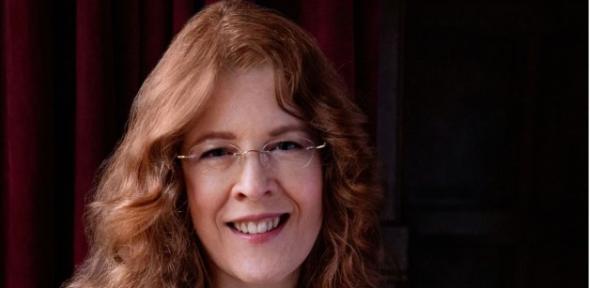Institute of Continuing Education (ICE)

Submitted by Amy Kingham on Thu, 02/09/2021 - 11:18
Academic Director and Senior Lecturer in Archaeology
Field: Archaeology
Subject specialism: Conflict archaeology and post-conflict heritage studies
I came to Cambridge in the 1990s to do an MPhil and then a PhD in Archaeology. Before that I did a BSc in Archaeological Sciences at Bradford University – a consequence of doing science A-Levels and realising late in the day that I wanted to do archaeology at University. I was the only woman on the course and the only person to get a first class degree, which I was rather proud of! I chose archaeology for all the wrong reasons – I was full of misconceptions – but it turned out to be perfect for me.
Working in Archaeology – and Heritage Studies, a subject which is taught in the Department of Archaeology here in Cambridge – has enabled me to become an activist. I work a lot, through my research into WWII archaeology and Holocaust heritage, with local communities. I have worked with families who were victims of Nazi persecution to help them get memorials erected, and have guest-curated museum exhibitions which have incorporated their family stories. I love that I am able to do work that still matters to people in the present, and I’ll be teaching students all about that in the forthcoming Diploma in Conflict Archaeology and Heritage.
I am currently leading a five year project with the International Holocaust Remembrance Alliance which is writing heritage guidelines to safeguard Holocaust heritage in Europe. The project is called Safeguarding Sites: the IHRA Charter for Best Practice . This year, despite the pandemic, I’ve been working with the Channel Island of Alderney on their labour camps and mass grave; I’ve also been to Austria with my team to visit Mauthausen and other concentration camps to see how we can help them overcome the challenges they face in the 21st century
I’m currently working on my 14th book – it’s an edited volume with Rachel Pistol on the history and heritage of the internment of Britons and internment by the British during WWII. I always have more book ideas than time to write them, but I know what my next three will be about. My earlier books are all about conflict archaeology and heritage, some of them with a focus on the Channel Islands, which is where I do a lot of my fieldwork. They have such a rich WWII archaeology and heritage so they are fantastic places for fieldwork.
While I was finishing my PhD, I became a panel tutor and taught a course on the Archaeology of Roman Britain for ICE. I then got my first teaching post at the University of Kent, where the position involved teaching both undergraduates and part-time adult students. After that experience, I applied for my current post at ICE and was successful. I like teaching adults because they come with life experience and make you question how you know what you know. The full time younger undergraduates are more likely to accept everything you say without question, but I love that adult students are bolder, more forthright and more questioning.
One thing that people often don’t appreciate about archaeology is that it gives you an insight into how the world came to be as it is. It’s an incredibly diverse subject, spanning all countries and all periods of time. I remember in my first archaeology lecture as an undergraduate, the lecturer challenged us to name one discipline that does not have an archaeological application, impact, relationship or relevance, and we were simply unable to. In many ways, archaeology is the study of everything. It’s not just about the study of old dusty stuff – archaeologists also study the present!
During summer holidays, I worked as a tour guide around the archaeological and cultural sites of the UK for Americans. It was incredibly hard work and I blacked out through lack of sleep on one occasion. I remember an embarrassing occasion of walking up and down the theatre district in London in the dark, with 30 worried students following me, desperately trying to find our theatre! That was before the days of google maps. I’m actually still friends with some of the people who were on that tour!